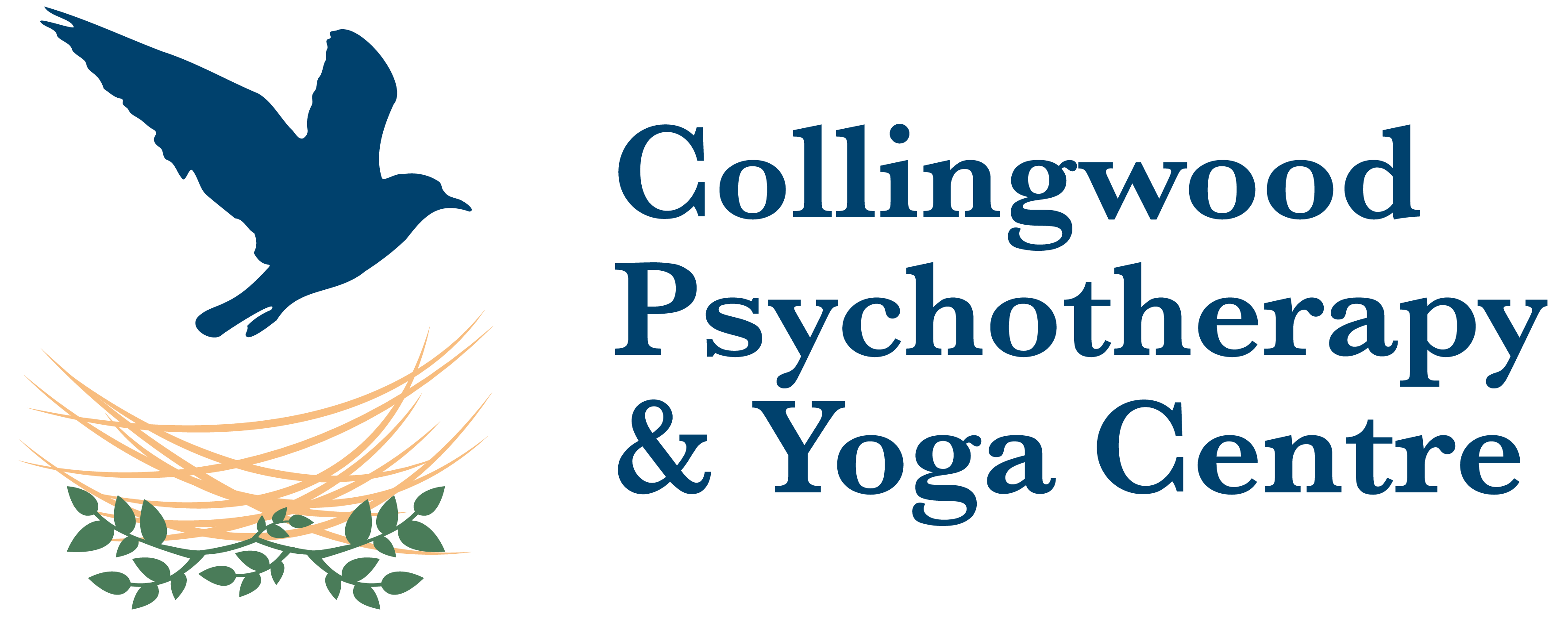The Importance of Cultivating the Use of Self
Author: Tara McGee, MSW, RSW, DipTIRP
Psychotherapist, OCSWSSW
These professionals include doctors, psychiatrists, nurses, social workers and psychologists, and even some psychotherapy colleges do not require that their students do their own personal psychotherapy. This means they can be a psychotherapist – your psychotherapist – and yet never have stepped into a therapy office as a client. To me, this is akin to going to a swim coach who doesn’t know how to swim; it is like going to a surgeon who has only read about the surgery they are about to perform on you but has never done it.
Psychotherapists, like swim coaches and surgeons, should not be spectators or theorists; to be effective, “safe” and competent, they must do their own personal psychotherapy work as a client so that they can learn to embody the theories – not just perform them from an intellectual, dissociated level.
In the art of psychotherapy, it is the therapist who is the “tool”. The “use of self” is the essential component to psychotherapeutic practice; it is even enshrined in the College of Registered Psychotherapists of Ontario’s (CRPO) requirements for entry to practice:

“One of the defining competencies of psychotherapy practice, safe and effective use of self, refers to the psychotherapist’s learned capacity to understand his or her own subjective context and patterns of interaction as they inform his or her participation in the therapeutic relationship with the client. It also speaks to the psychotherapist’s self-reflective use of his or her personality, insights, perceptions, and judgments in order to optimize interactions with clients in the therapeutic process.”
Although CRPO states that therapists can learn the “use of self’ in a myriad of ways (personal and group psychotherapy, courses on use of self, guided and reflective indigenous practices and clinical supervision), it is my experience, having worked with many psychotherapists as a colleague and supervisor, that those therapists who have not or do not regularly engage in psychotherapy and ongoing healing practices related to the field, simply cannot embody the theories.
If you have never experienced the theories in action, at a personal level, how can you ever hope to embody them and enact them in the therapeutic relationship? I wouldn’t feel safe to be taught to swim by someone who would likely drown if they jumped in the lake; similarly, I would never, ever go to a psychotherapist, or any healing professional for that matter, who does not have the personal experience of receiving the healing work they are offering. In fact, I would never, ever go to a healing professional who was not dedicated to their own healing and who was not receiving the healing they were offering.
As a psychotherapist, I am a client. As a client, I am learning to be a psychotherapist. What I mean by this is that when my clients walk into my office, I can be at ease with them and with what we “do” together in our work because I know how to embody psychotherapy theories. I can embody the theories because I understand them both cognitively as well as experientially – I have felt the theories in action, I have observed their effects on my system and in my relationships at a personal level and then I have applied this to my professional work with my clients. From my experience as a client, I know which theories in action have brought me the most clarity, connection, change, reduction in fear and anger, authenticity, grounding, security, emotional regulation, joy, insight, curiosity, inspiration, truth, peace and love for self, others, and life itself. I also know which theories in action did not bring these results, so I choose not to employ them.

T.Krishnamacharya, “Legendary yoga guru who managed to give every seeker of yoga and yoga therapy exactly what they sought”, said to his yoga therapy students who were learning to be teachers, “Teach what is inside you. Not as it applies to you, to yourself, but as it applies to the other.” By this, I feel he meant that from your own experience of a healing practice, you will be able to embody the healing practice.
From this embodiment of the practices, skills and theories, you will know intuitively from your insides what your student/client needs because you have experienced the effects of the tools and practices. In the hands of a skilled psychotherapist or yoga therapist, I have had the experience of wondering “How do they know how much I need this, just when to challenge and when to have compassion or how good this practice feels? How do they know just what to say and when?” They know because they have been there themselves; they know the path, and they are guiding you down it—not to where they have been, but to where they can sense you need to go for your highest healing. They can trust you as the one receiving or engaging in the healing work with them because they know the potential that lies within the human experience because they have felt it. They can sense what is likely needed in you because they have experienced what was needed in them. They did not just read the manual; they lived the manual.
Remember in the movie, Good Will Hunting, when Robin Williams, the therapist, brings Will to the pond to reflect? He tells Will (his highly intellectual and defended client) that Will may have read and memorized everything about the Sistine Chapel or all the great works about romantic love, but that he has never smelled the inside of the Chapel and experienced the way the art makes you feel. He has never had the experience of deep romantic love that is heart wrenching and beautiful (or something to that effect). The therapist recognizes that personal experience is a way of knowing that has more depth, breadth and capacity for impact on the self or the soul than intellectual theorizing. He recognized that LIVING something is a deeper way of knowing than just THINKING about something.
So, if psychotherapy is an experience that is meant to lead you towards improving your capacity to engage in life with more contentment, love, ease and a deepening connection to yourself and others, shouldn’t your psychotherapist be actively pursuing these goals themselves? How can you get anywhere in your personal work if your psychotherapist won’t go to therapy or can’t see that they need healing not only professionally, but also personally? How can you not feel judged by a therapist who views themselves as “too good for” or “too healthy for” or “above” therapy and their own healing? How can you not feel skeptical of a therapist who does not personally practice the techniques they espouse? How can you feel safe with a therapist who doesn’t know what it’s like to be in a client’s shoes, to experience the theories, to try to embody them in day-to-day life, to struggle after a session, to integrate the material from a session? How can you feel like you can go to any depth in your work if your therapist is too scared to go to any depth in themselves?
I was speaking to a conscientious and humble supervisee recently who was worried that they were not ready to be a therapist because they were not “fully healed”. This person is in active psychotherapy and supervision, and they recognize that their personal healing work is ongoing. However, they had the belief system that some day they would be “fully healed”. I understand this belief, as I have shared it as well – the belief that I need to embody complete health and enlightenment before I can guide others towards healing. In my opinion, no one is “fully healed” unless they have achieved a permanent state of enlightenment, which is pretty advanced. So, if we must wait for everyone in the helping and healing profession to be “fully healed”, we will be waiting a long time for any healing to occur.
We don’t need our psychotherapist to be “fully healed”; all we need is for them to be a “bit further down the path” than we are – or in the very least, to be walking down the path! We need them to have more personal experience with their healing through the theories and modalities they are working with than we have. This is a subjective measure, and the client needs to feel this out. For instance, I have been a practicing psychotherapist for 15 years. Before that, I was a counsellor and worked with children and teenagers for years. I have also practiced yoga and danced for most of my life – two endeavours that have felt healing to me. I have engaged in individual, group and couples’ psychotherapy, clinical supervision, almost daily yoga practice and yoga therapy for the past 16 years. I have a lot of experience with healing in self and other.
I would not go to a first-year psychotherapist because chances are, they have not travelled very far down their own healing path. I would definitely never go to anyone who does not publicly share how they engage in healing work. Instead, choose therapists and healers who are skilled, embodied and have been personally healing for a long enough time in the modality that they use what they have seen and experienced more than me. If you are completely new to therapy, have never really done any healing work, then a first-year psychotherapist would be fine for you if you feel comfortable in the relationship with them and IF THEY HAVE DONE THEIR OWN HEALING WORK.
I say all of this because I become concerned with people thinking they are getting “therapy” when they are really coming up against someone else’s (the therapist’s) defences without the therapist being able to be conscious of this and take responsibility for it. This frightens me because working with the emotional, energetic, intuitive, and physical bodies, as effective and experienced psychotherapists do, is a delicate, skilled and powerful modality that can result in deep shifts and life change. If psychotherapists do this powerful work without the embodiment, grounding and humility that comes from deep personal healing work, they risk further harming the client and deepening the trauma imprints. Or less harmful, but still against the goal of therapy, very little shifting can occur within the client when the therapist does not intimately understand the effects of therapeutic interventions on the internal world. Don’t get me wrong – I still have defences that are unconscious even after all the work I have done. However, my personal work has allowed me to be much more willing to recognize these defences, own them and work on them in supervision or therapy when they come up so that I can re-engage with the client from a place of self responsibility rather than a place of judgment of them.
So, if you are a psychotherapist or even any type of healer, please, for your own sake and the sake of your clients and the profession, do your own work, take your own “medicine” and learn to embody your “tool”. Learn to truly “use the self” for therapeutic healing work by honing and learning to wield this tool through your personal experience of the psychotherapeutic modality you choose to employ. Then, go to supervision to learn to merge your personal experience of your healing work with the theories that you are employing.
If you are a client, beware of any therapist who does not regularly engage in psychotherapy and healing or who has never been to therapy. If they are too defended to work therapeutically on themselves, then they are definitely too defended to work with you. Going even one step further, not everyone who engages in therapy really engages; a person can go to therapy for years and years and never make the decision to actually address the defences and roots of trauma the are carrying. There is very little any therapist can do if someone does not feel ready to put in the work and make the commitment it takes to move closer to their own light. So, just because your therapist is in therapy does not mean they are engaging in it; use your intuition. You should be able to see the effect of their personal healing work in that they are regulated, warm, authentic, humble, self responsible, real, and fallible without being defended – or if they are defended, they have the courage and ability to repair with you in a human way. It is your healing path; make sure you choose the right guides.
The other day, a friend asked, “Are all your clients really unbalanced and unstable?” I replied that all my clients are just regular people who are having a human experience and are looking for some guidance with that. As I’m a client as well, I do not see my clients’ experiences as outside the realm of “normal”, but rather, well within the realm of having a human experience. I know what it is like to work with my emotions, to figure out how to embody and ground myself, to face my fears, my patterns, my defences, or “parts”, to step into an old root system and move through it. I know what it is like to truly recognize my responsibility and role in a conflict even if I would prefer to defend with shame. I know what it’s like to see myself as victim, failed rescuer, and perpetrator and to accept myself as human. I know what it’s like to “see” something about myself that is new or scary or strange and to understand it and accept it and make choices about it. It’s all just a matter of degrees.
The way I see it is that some of us, including psychotherapists and other healers, are more often embodied and less dissociated, and some of us are less often embodied and more dissociated. Same thing, just different ends of the spectrum. Being human to me means that despite the level of dissociation we are working with, our human “healing work” is to move closer and closer to a conscious experience of our “self” and further and further away from defence and dissociation from this self. At least, that’s what I’m working on in my life, and that is how I work with my clients because that’s what I’ve learned so far from my own psychotherapy and healing work. I work with the “use of my self” so that my clients can move towards more conscious awareness of their self too. It is my sincere hope that anyone who is working as a psychotherapist, or any type of healer, will join us.

Tara
